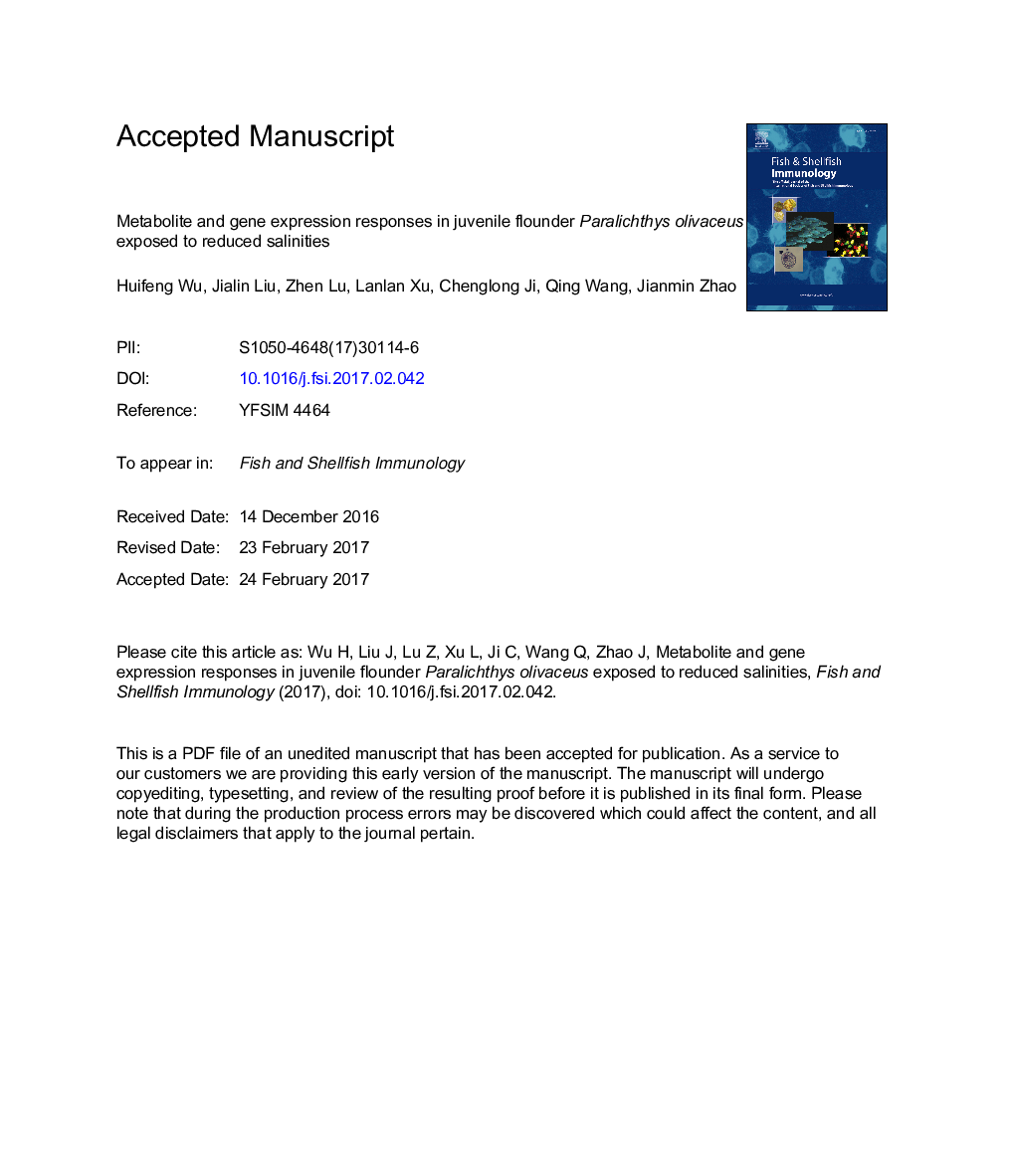| Article ID | Journal | Published Year | Pages | File Type |
|---|---|---|---|---|
| 5540956 | Fish & Shellfish Immunology | 2017 | 23 Pages |
Abstract
Seawater salinity is one of the most important changeable environmental factors influencing the behavior, survival, growth and production of marine organisms. In this work, metabolite and gene expression profiles were used to elucidate the biological effects of reduced salinities in juvenile flounder Paralichthys olivaceus. Metabolic profiling indicated that both reduced salinities (23.3â° and 15.6â°) enhanced proteolysis and disturbed osmotic regulation and energy metabolism in juvenile flounder P. olivaceus. Furthermore, the low salinity (15.6â°) enhanced anaerobic metabolism indicated by the elevated lactate in flounder tissue extracts. Gene expression profiles exhibited that reduced salinities could induce immune stress and oxidative stress and disturb energy metabolism in juvenile flounder P. olivaceus. In addition, reduced salinities might promote the growth and gonadal differentiation in juvenile flounder P. olivaceus.
Related Topics
Life Sciences
Agricultural and Biological Sciences
Aquatic Science
Authors
Huifeng Wu, Jialin Liu, Zhen Lu, Lanlan Xu, Chenglong Ji, Qing Wang, Jianmin Zhao,
